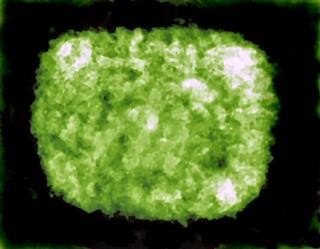The Infertility Org
Infertility After a C Section
We are the best source for complete info and resources for Infertility After a C Section on the Internet.
Department of Health and Human Services, Centers for Disease Control and Prevention, National Center for Health Statistics. BMI (body mass index) may be a significant factor in fertility, as an increase in BMI in the male by as little as three units can be associated with infertility. Fertility treatment with donor eggs is usually done using IVF. Renal Transplantation Between Adults and Children. (PDF, 1 MB) Journal of the American Medical Association, 1974. Human menopausal gonadotropin, or hMG (Repronex): This contains both FSH and LH. The testicles will be checked for lumps or deformities, and the shape and structure of the penis will be examined for abnormalities.
8 Involvement in group counseling and exercise is more effective than weight loss advice alone. We generally recommend seeking the help of a reproductive endocrinologist if conception has not occurred within 12 months.
Below are Some Even more Details on Infertility After a C Section

More Information Around Schotsman Infertility Management Foundation
Medical conditions Some medical conditions can affect fertility. Since they will still be working with scopes and other laparoscopic instruments, CO2 will have to be maintained in the patient's abdomen, so a device known as a hand access port (a sleeve with a seal that allows passage of the hand) must be used. In most cases, only 1 follicle is recruited and develops until ovulation. In reproductive medicine, the most common surgical procedures are laparoscopy, hysteroscopy, and abdominal myomectomy (removal of uterine fibroids).
Extra Resources For Varicocele Operation Infertility
Additionally, transvaginal ultrasound affords the opportunity for your physician to assess the relative number of available eggs. Metformin (Glucophage): If Clomifene is not effective, metformin may help women with PCOS, especially when linked to insulin resistance. In-vitro fertilization and donor insemination are major procedures involved. Epidemiological definition of infertility (for monitoring and surveillance) Women of reproductive age (15–49 years) at risk of becoming pregnant (not pregnant, sexually active, not using contraception and not lactating) who report trying unsuccessfully for a pregnancy for two years or more. (Reproductive Health Indicators) Infertility as a disability Disability: Infertility generates disability (an impairment of function), and thus access to health care falls under the Convention on the Rights of Persons with Disability. 8,33,35,36 Lastly, in vitro fertilization, with or without intracytoplasmic sperm injection, is the mainstay of assisted reproductive technology for male factor infertility. Your doctor may suggest that you take gonadotropin if you have unexplained infertility or when other kinds of treatment haven't helped you get pregnant.
Right here are Some More Resources on Infertility After a C Section
Hormone imbalances Infertility can result from disorders of the testicles themselves or an abnormality affecting other hormonal systems including the hypothalamus, pituitary, thyroid and adrenal glands. Gonadotropins can trigger ovulation when Clomid or Serophene don't work. Luteinized unruptured follicle syndrome can be prevented by the administration of hCG (10,000 IU IM) once the follicle reaches 23-24 mm in diameter. Less common factors The following other factors may also be responsible for infertility in a smaller proportion of cases: • Genetic abnormalities within eggs, sperm or both • An abnormal uterine cavity, including the presence of fibroids or polyps • Immunological infertility, whereby either the male or female partner produces anti-bodies against sperm cells or implantation of an embryo • Abnormal cervical mucus which hinders the passage of sperm to the uterus and fallopian tubes Unexplained infertility Even when investigations have been extensive, some couples will have no reason with which to explain their infertility. Having an irregular cycle, including missing periods, can contribute to infertility, as it means a woman may not be regularly ovulating. Some suggest that the number of times a couple has intercourse should be reduced to increase sperm supply, but this is unlikely to make a difference. Testicular Sperm Extraction (TESE) and Intracytoplasmic Sperm Injection (ICSI) for Non-obstructive Azoospermia.(PDF, 1 MB) 10th World Congress on In Vitro Fertilization and Assisted Reproduction, 1997. Some women are infertile because their ovaries do not mature and release eggs. Ongoing Pregnancies and Birth after Intracytoplasmic Sperm Injection with Frozen-thawed Epididymal Spermatozoa. (PDF, 442 KB) Human Reproduction, 1995.
Previous Next
See also
Klinefelter's Syndrome Infertility Options
My Infertility Problems
Female Infertility Medications